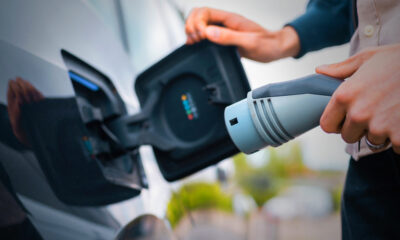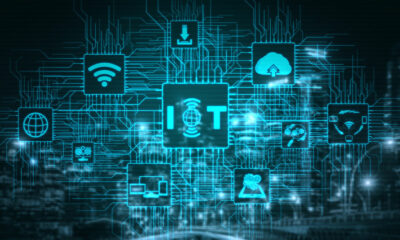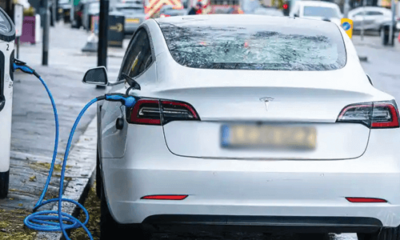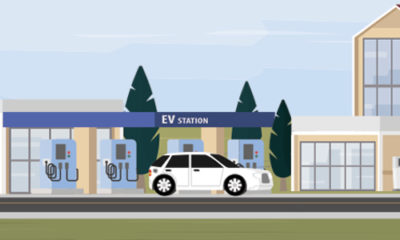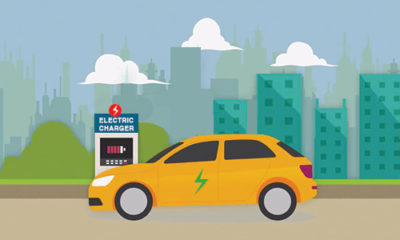News
AI/ML-push must for e-mobility adoption
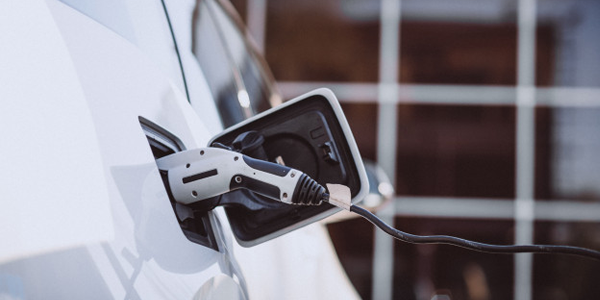

Source:https://www.energybite.co.in/blog-post/ai-ml-push-must-for-e-mobility-adoption/
Internet of Things, Artificial Intelligence and Machine Learning are the technologies which have the potential of sorting pain-points in mass adoption of EVs. The automobile industry needs to adopt these technologies with greater vigour and the Government too must spend heavily in their R&D to reach its target of full electric mobility by the year 2030.
The world is in the throes of an energy-depletion crisis and people have started realising that switching over to smarter and greener options, like renewable energy, is essential. Being no less conscious, the automobile industry, too, has embarked upon the process of transition towards electric vehicles (EVs) since the past decade or so. However, it is a slow and steady process which is refusing to gather pace because of a variety of reasons. The industry must look for solutions to this problem and adopt them at a swifter pace.
With advancements in Internet of Things (IoT), Artificial Intelligence (AI) and Machine Learning (ML), the world has become a smarter place now. The auto industry needs to embrace these technologies with greater vigour to improve the performance and battery life of EVs while also decreasing the overall cost of the vehicle, the prime factors behind slower adoption of EVs in the country.
- The auto industry needs to embrace these technologies with greater vigour to improve the performance and battery life of EVs while also decreasing the overall cost of the vehicle.
- With the use of AI, an electric vehicle can auto-drive itself, change lanes on its own and even apply brakes when and where required, all by its own without any human interference.
- With the help of Big Data, AI has the ability to predict traffic congestions by analysing the weather, day, date or hours. It can then provide the best suitable route to the driver to beat the traffic.
- The system also has the ability to plug-in the EV wherein the stored battery power can be resold to the grid at the highest rate by resorting to Vehicle-to-Grid (V2G) charging.
AI and ML have the potential to bring about the fourth Industrial Revolution, following the steam, electricity and computing revolutions. The value and investments on AI in the automotive industry are expected to cross the $10-billion mark by the year 2024. Artificial Intelligence and Machine Learning can change the mobility industry in many ways. With the use of AI, an electric vehicle can auto-drive itself, change lanes on its own and even apply brakes when and where required, all by its own without any human interference. Global companies like Tesla and Waymo (Google) are the leaders in the autopilot features.
With the help of Big Data, Artificial Intelligence has the ability to predict traffic congestions by analysing the weather, day, date or hours. It can then provide the best suitable route to the driver to beat the traffic. AI also has the capability to monitor the driver’s capacity or ability to drive. If at any point of time while driving the vehicle, the person feels sleepy or loses focus, the smart system sends a warning to the driver by sounding an alarm and suggesting a break. This is a huge step forward for the automotive industry from the consumer safety aspect. AI can also analyse the vehicle health and suggest predictive maintenance, if necessary.
With the help of AI, consumers can enjoy the benefit of charging their EV at a time when the electricity rates are at the lowest during the day. The system also has the ability to plug-in the EV wherein the stored battery power can be resold to the grid at the highest rate by resorting to Vehicle-to-Grid (V2G) charging.
With such revolutionary offerings by AI and ML, the Government should also invest heavily in the R&D of these technologies so as to reach its target of complete transition from fossil fuel-based vehicles to EVs by 2030. Besides, it also needs to ensure standardisation of EV batteries and charging infrastructure to create a world-class state-of-the-art EV ecosystem in the country.
-



 News3 weeks ago
News3 weeks agoKW Delhi 6 Mall Onboards New Brands
-



 News3 weeks ago
News3 weeks agoManasum Senior Living Launches IKIGAI GOA, A Senior Living Community in North Goa, in collaboration with Prescon Homes
-



 News2 weeks ago
News2 weeks agoGodrej Properties Sells Rs 3k cr+ Homes of Godrej Zenith, Gurugram, within 3 days
-



 News3 weeks ago
News3 weeks agoBridging India Divide: Top 5 Tier- 2 Cities to Focus On
-



 News3 weeks ago
News3 weeks agoCommercial Realty Gets Tech Savvy: Fast Construction, Enhanced Convenience
-



 News3 weeks ago
News3 weeks agoMultipoint Connection – A Definite Boon
-



 News2 weeks ago
News2 weeks agoRBI’s Status Quo on Key Policy Rates to Help Maintain the Real Estate Growth Momentum, Say Industry Stalwarts
-



 News3 weeks ago
News3 weeks agoSacred Cities See a Retail Boom as Spiritual Tourism Surge: CBRE Report







